With some of the most extended hunting seasons in the West and sprawling access to millions of acres of both public and private land, Montana offers an unmatched hunting experience. However, before you can head out to the magnificent landscapes, you’ll need to navigate the intricate world of the state’s hunting licenses.
This comprehensive guide to Montana’s hunting license system will take you through aspects such as the various types of licenses, resident and nonresident requirements, and even intriguing programs like hunting license donations.
We’ll also discuss the prerequisites for obtaining a hunting license in Montana, and how to make the most of your hunting experience within the nitty-gritty of Montana’s hunting regulations.
- Related article: Introduction to Montana Hunting
So, if you’re ready to go on your next hunting adventure in this picturesque state, or even if you’re just fascinated by the backcountry policies that make Montana a hunter’s paradise, read on to unlock the detailed steps to securing your Montana hunting license with ease and confidence.
7 Key Takeaways on Montana Hunting License
- Montana’s Conservation License is your golden ticket to explore state lands on all recreational pursuits.
- Your “membership card” to the world of hunting, the Base Hunting License Fee is typically an annual fee, covering both residents and non-residents, and is a must for any hunting venture.
- Essential for Montana’s archery-only seasons, the Bow and Arrow License and Bowhunter Education are a must for those wanting a quieter and more challenging hunt.
- The Hunter Education is a must for those born after 1985, and a great launchpad for budding hunters.
- From resident to non-resident licenses, and youth to senior permits, Montana offers a variety of options to fit your hunting plans and duration.
- The detailed requirement list for Montana residents includes the 180-day residency period and specific administrative needs.
- Ranging from the General Deer Combination to the Come Home to Hunt License, there are numerous options for non-residents, offering a mix of general and specialized game licenses.
Montana Hunting License Prerequisites
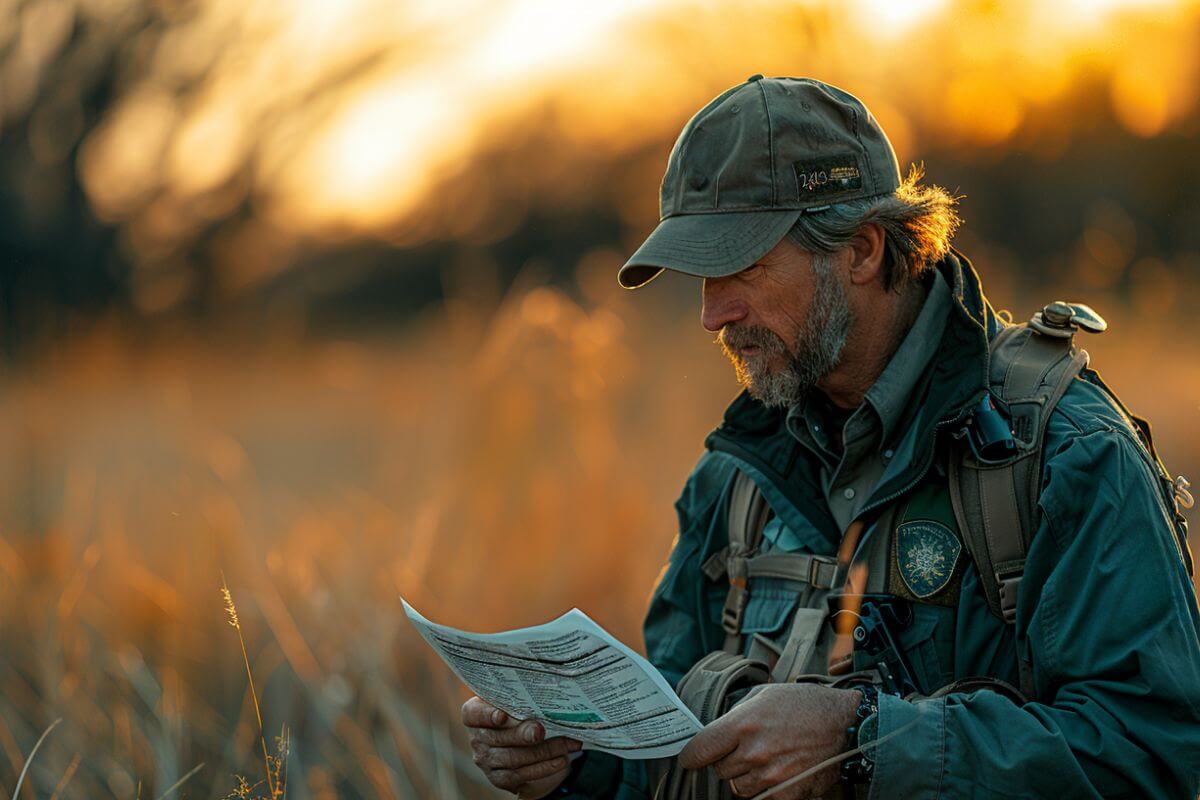
To fulfill your hunting aspirations in the treasure trove of Montana’s wilderness, there are a few preliminary requirements. Each hunting license requests a different set of qualifications, based on the type of hunt you’re looking to engage in.
Securing a hunting license in Montana is a multi-step process with various prerequisites and administrative criteria. However, it’s all in service of ensuring responsible and sustainable hunting practices that allow everyone to appreciate Montana’s breathtaking natural resources.
Just note that for more details about application deadlines, application fees, and random draws, visit the Montana Fish, Wildlife & Parks website or contact the FWP licensing office at 406-444-2950.
1. Conservation License
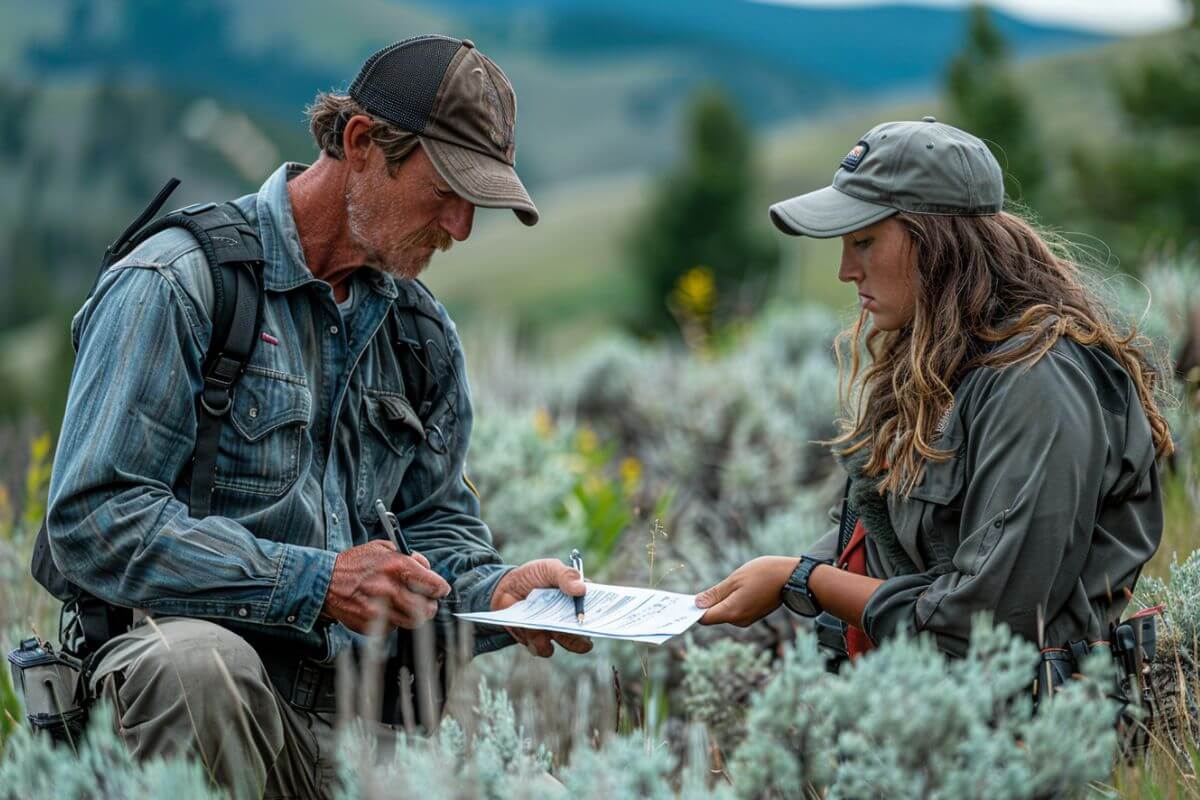
If you’re gearing up for a Montana adventure, your starter pack better include a key item known as the Conservation License. This license opens the door to most state lands and warrants your involvement in the state’s conservation efforts.
It’s the golden ticket that allows you to dip your toes into all kinds of recreational pursuits, whether hiking, biking, and most especially hunting. It’s your ticket to explore and experience this state the way it’s meant to be, all while ensuring the preservation and sustainable use of Montana’s natural resources.
What’s crucial to know is that the Conservation License is required across the board, for both Montanans and non-residents, serving as a foundation stone for all the other licenses facilitating specific activities.
In terms of where Montana’s Conservation License has jurisdiction, picture it as your entry pass to all state-owned lands, except for Montana State Parks.
A couple of key details worth noting when applying for a Montana Conservation License:
- Last 4 digits of your Social Security number – Remember this is usually required, so don’t be shy.
- Valid driver’s license or ID – Equally indispensable for receiving your conservation blessing.
Now that you’re in the know, snag your Conservation License, and you’re on your way to being fully versed in Montana’s outdoor access and hunting regulations. You could call this piece of paper your golden chalice, the holy grail if you will, unlocking Montana’s incredible wild spaces for you.
2. Base Hunting License Fee

Talk about a good start, right? When you’re dipping your toes into hunting in Montana, one of the first things you’ll encounter will be the base hunting license fee.
The Base Hunting License Fee is like the “membership card” that grants you entry into the world of hunting in Montana. This is an annual fee and is typically assessed when the hunter purchases or applies for the first hunting license of the year.
And let’s not forget, it covers upland and migratory bird licenses too. Also just so you know, you’d need carcass tags or licenses specific to the species you’re targeting.
The year kicks off with a momentous decision: what do you want to hunt? It’s like the culinary equivalent of choosing between steak or chicken.
So, make your application for licenses wisely, as they form the base of your entire hunt choice. And just like a great starter to a delicious meal, this license sets the tone for your hunting year.
3. Bow and Arrow License and Bowhunter Education
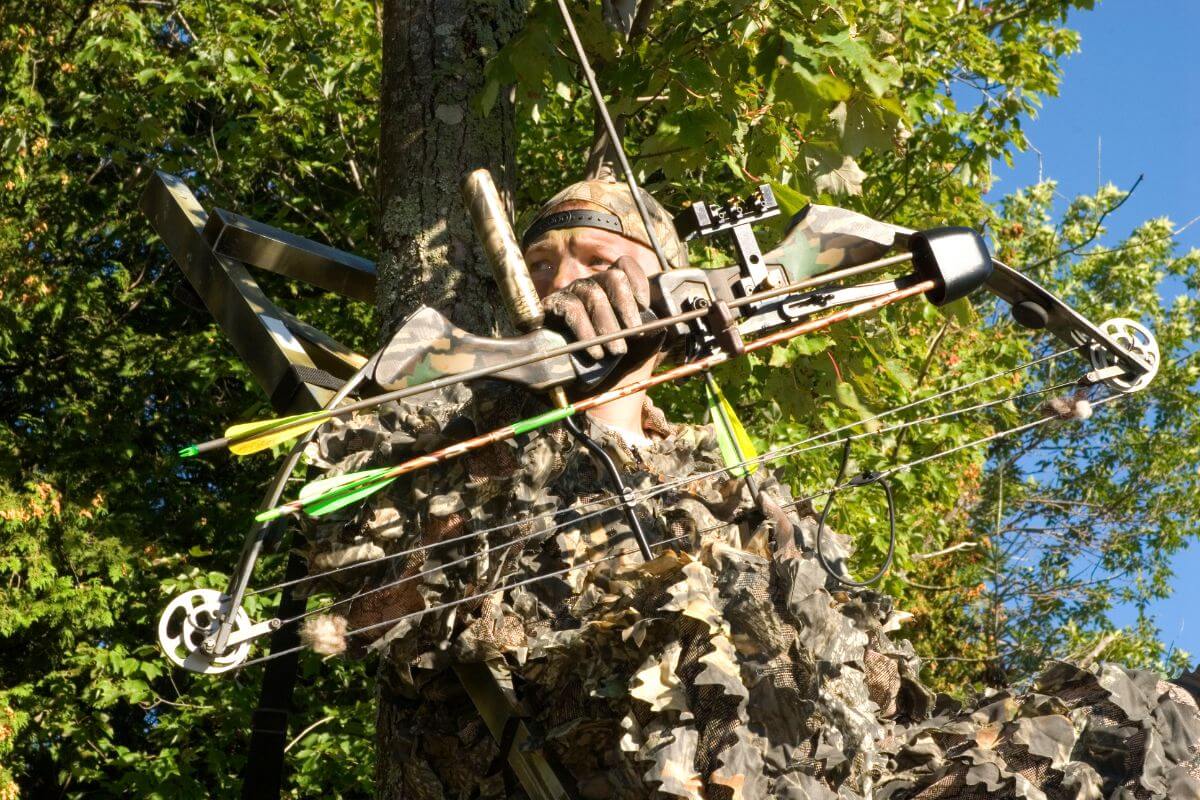
One thing’s for sure – stepping into the Montana woods in search of game has a timeless allure. But before you tap into your inner Katniss, you need to wrap your head around the specifics of a bow and arrow license.
During Montana’s archery-only season or in designated archery-only zones, a valid bow and arrow license is a must — in addition to your standard hunting licenses. The archery-only season is generally tailored for a quieter, more challenge-packed hunt.
But wait, there’s more! Bowhunter education is mandatory if you’re planning to go all-in on archery. This requirement isn’t age-specific, so whether you’re 16 or 60, you’ve got to teach that quiver who’s boss.
To get your hands on this archery license, it’s either complete a bowhunter education course, be it in Montana or any other state, or show a prior year’s bowhunting license from any U.S. state or province in Canada for swift approval at your local Montana Fish, Wildlife & Parks office.
In the language of the woods, a bow (includes compound bow or crossbow) and arrow hunt is akin to whispering your intentions to the forest. If you prefer the feel of the bow and arrow, you’ll find the Montana wilderness offers an experience quite unlike traditional rifle hunting.
4. Hunter Education

In Montana, to sling lead and set your sights on that big game or waterfowl, you need bona fide proof of your hunter education know-how. Anyone whose years of existence began after January 1, 1985, will need to provide a valid hunter education certificate issued by Montana or its neighboring provinces.
Perhaps you are the proud parent of a budding hunter, all wrapped in your old camo jacket for their first big day of hunting? Here are the 101 facts for you.
In Montana, those aged 10-11 can enroll in a hunter education course but will operate as apprentices until they hit the magic “Fully Certified” button at 12. The youth, geared with their hunter education, who’ll be 12 by January 16 of the license year, can purchase a license post-August 15 and even join the hunting expeditions before they blow out the candles.
Not feeling the vibe of traditional education? Don’t worry, Montana’s got something for that too. The Apprentice Hunter program is your golden ticket.
The Apprentice Hunter program permits anyone 10 years or older to get a taste of hunting without having to sit through the rigors of a traditional hunter education course. But note, this is a two-year pass, not a lifelong membership to the “I-hate-lectures” club.
Timing your Montana preference point purchase is crucial, especially when you’re eager to secure a permit for hunting big-game species like elk. Remember, the inspiration behind these regulations isn’t to make your life miserable. It’s to foster a safe, ethical, and sustainable hunting culture.
Montana’s Hunter Education Takeaway Tips:
- If you were born after January 1, 1985, you need a hunter education certificate to dive into the art of hunting in Montana.
- Ages 10-11 can dive in early but will be hunting as an apprentice till they turn 12.
- The Apprentice Hunter program offers a shortcut for eager youngsters.
Types of Montana Hunting Licenses
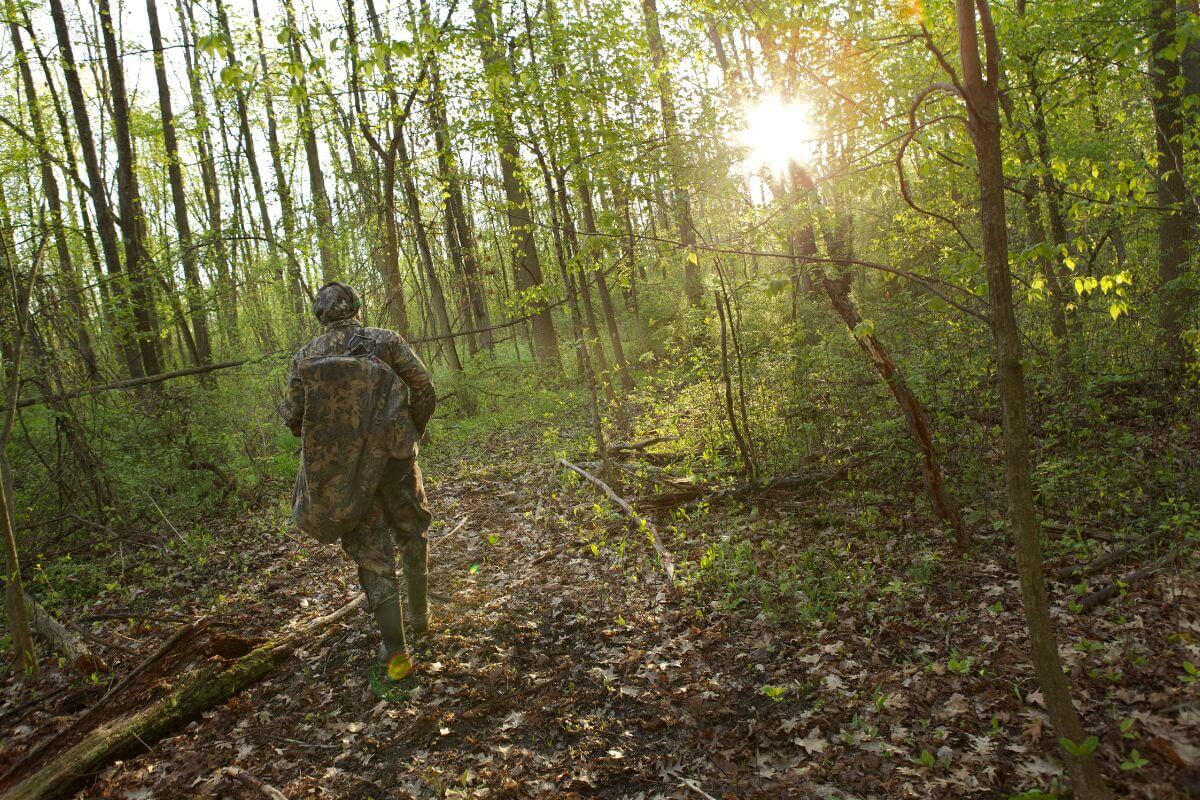
Montana offers a variety of hunting licenses to cater to the differing needs and preferences of hunters in the state. From general licenses purchased over the counter to special limited licenses available through drawings, understanding these types of Montana’s hunting licenses can save you time, and hassle.
So, think about the game you’d be chasing, your stay duration, and your residency to lock in the most suitable license. Whether you’re an experienced elk stalker or a newcomer hoping to witness Montana’s wildlife wonders, there’s a correct license type just right for you!
1. Montana Resident Hunting License
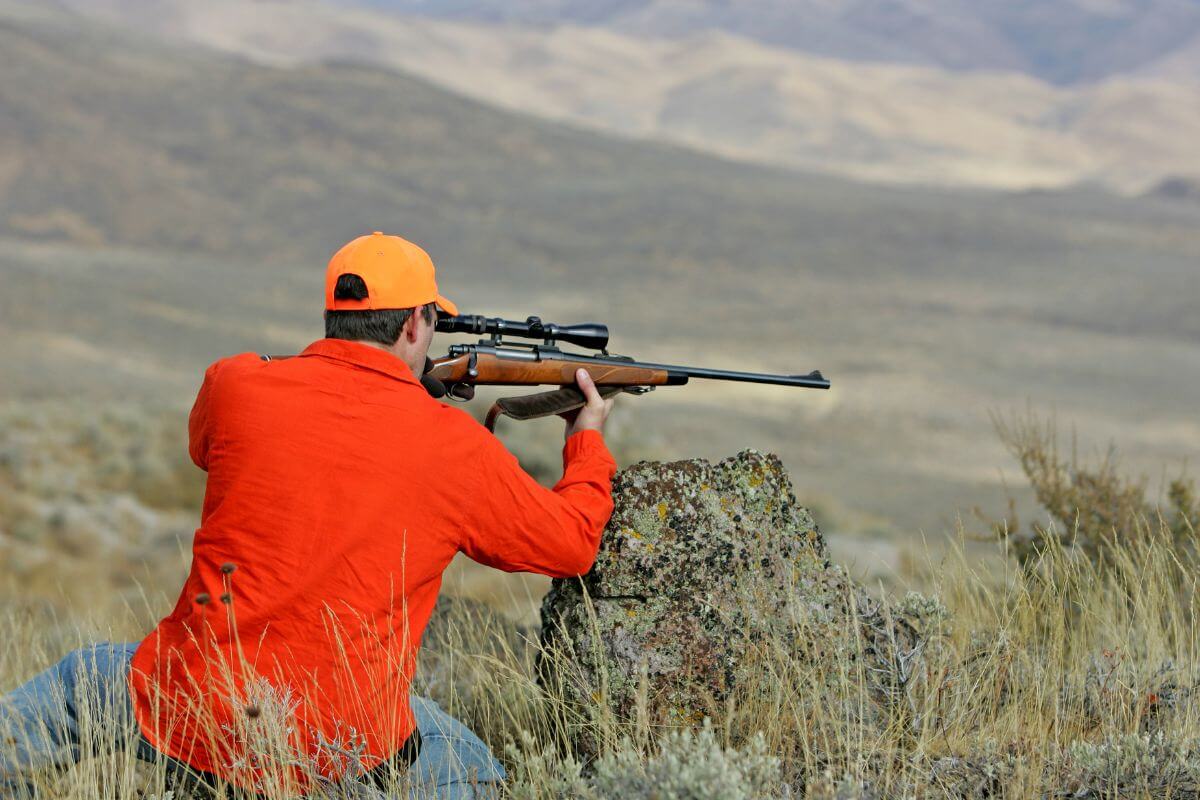
Are you spending at least half of the year appreciating Montana’s wild beauty and rugged landscapes? You, my friend, are probably a legal Montana resident — or soon on your way there.
But first, to get that coveted resident hunting license, you have to meet some specific Montana residency requirements. You’ll need to have lived in the state for at least 180 days — that’s 6 months, in a simpler sense. Additionally, you should be prepared for the cost associated with a Montana hunting license.
If you’re an active-duty military member stationed in Montana, you get to jump the line and bypass this residency period. Yes, your service to our country has its perks.
The Montana Resident Hunting License Checklist:
- Montana Residency – Physically lived in Big Sky Country for a solid 180 days before purchasing your hunting license.
- Vehicle Registration – Your car(s) should be registered in Montana too.
- Registered Voter – You’re also required to be registered to vote in Montana (if you’re registered to vote at all).
- Resident Hunting Privileges – You can’t possess or have applied for resident hunting privileges elsewhere to enjoy these Montana benefits.
- Resident Income Tax Returns – And of course, file Montana state income tax returns as a resident if you’re required to file.
If you’re a Montana local or meet the legal requirements, the Montana Department of Fish, Wildlife, and Parks could soon be approving your resident hunting license. Just ensure you’ve got all your legal ducks in a row, including your voting and tax records.
2. Non-Resident Hunting License
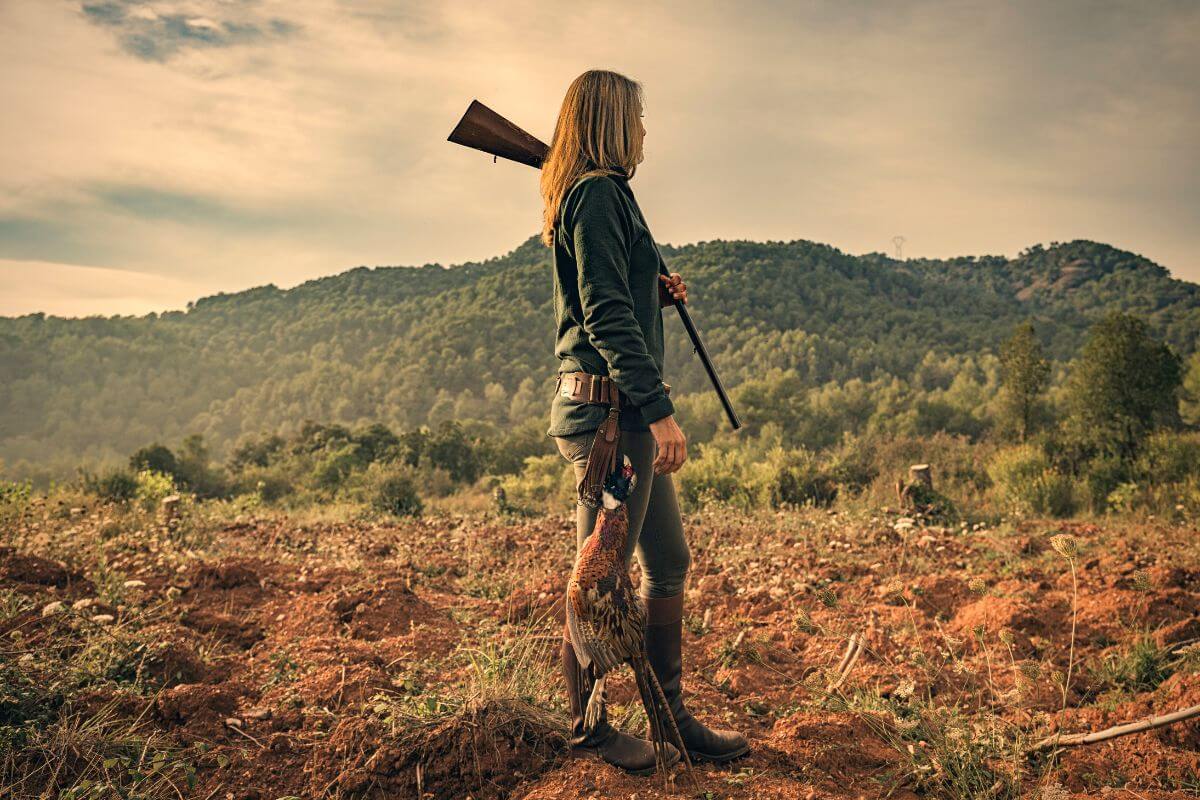
If you’re a non-resident with your gaze set toward Montana’s expansive wilds, you’ve got multiple game packages to choose from. Each package comes with its own set of rules and regulations, so pay close attention to the one you plan on betting your luck on in the state’s computerized drawing.
For general hunting packages, Montana offers 3 through a random drawing:
- General Deer Combination
- General Elk Combination
- General Big Game (Deer & Elk) Combination
In addition to these packages, there are other individualized combination opportunities available such as:
- Landowner-Sponsored Deer License – If you happen to know a Montana resident landowner, they can sponsor you for a Deer Combination License. Just remember, all your deer hunting must happen on their deeded property.
- Come Home to Hunt License – This one is particularly heartwarming. If you are a non-resident with prior Montana ties, you might just be able to snag this one, and you’ll even get to hunt with a licensed family member. Plus, funds from these licenses help open up more public hunting access to inaccessible public land.
- Nonresident Native License – If you’ve got roots in Montana but had to leave, this license offers you an opportunity to hunt as a sort of ‘homecoming’. You’ll need a family member who’s still residing here to vouch for you.
- Youth Combination License – Perfect for young hunters under 18.
- Nonresident Student Hunters – If you’re a student studying in Montana, you’re in luck with this student license.
For elk and deer hunting, party applications for licenses are available with a maximum party size of five. General Combination Licenses are randomly issued through a computer drawing. The deer and elk licenses included in these Combination Licenses are valid throughout the state under general hunting regulations.
3. Youth Hunting License
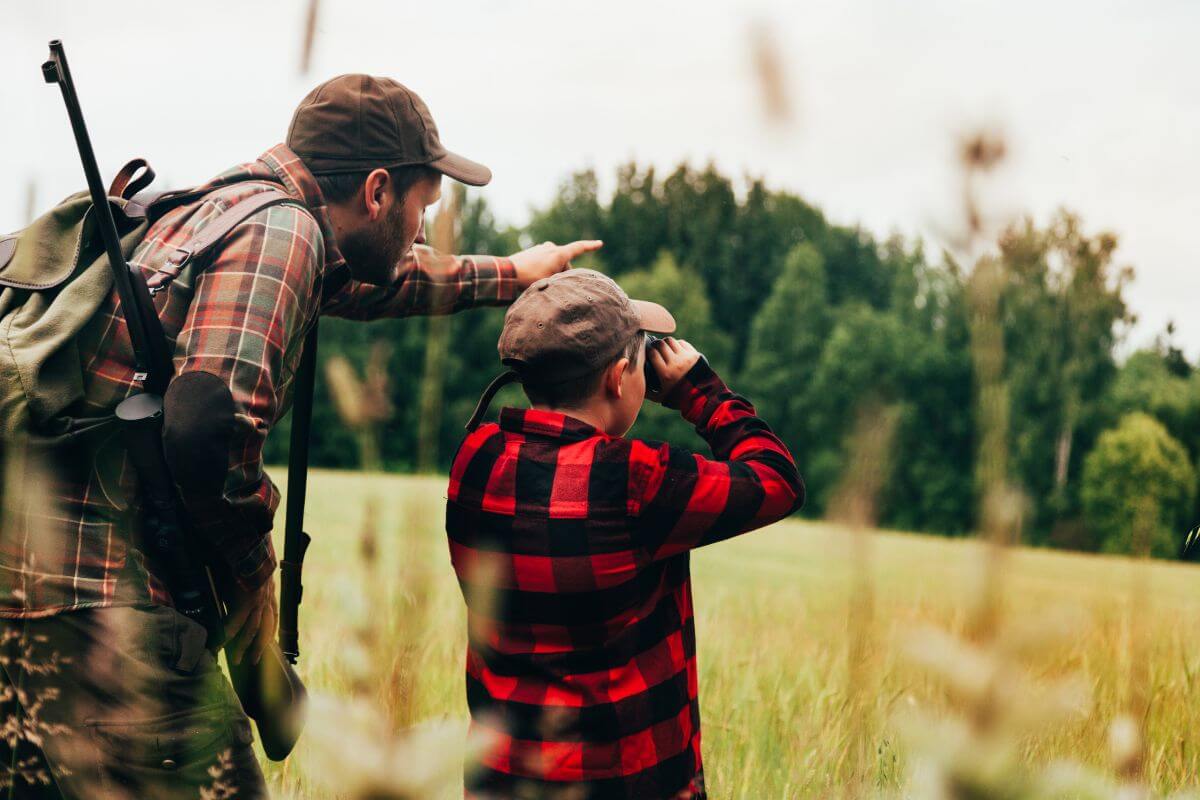
Are you a Montana resident who’s just itching to introduce your teenager to the thrill of hunting? Or perhaps you’re visiting and looking to kindle the same passion in your non-resident tween. Well, you’re in luck!
The Montana Fish, Wildlife & Parks (FWP) offers tailor-made solutions to fuel the excitement within the younger members of your family. Montana’s Youth Hunting License Program breaks down barriers by offering reduced-price licenses to both residents and non-residents aged 12-17.
For an even more accessible entry point, participants aged 10-17 can enroll in the Apprentice Youth Program. Here are the license types for youth hunting in Montana:
| License Type | Eligibility | Included Licenses |
|---|---|---|
| Resident Youth Combination | Montana residents aged 12-17 | Fishing, Upland Game Bird, General Deer, General Elk |
| Nonresident Youth Combination | Non-residents aged 12-17, sponsored by an adult sponsor with a valid hunting license | Discounted Big Game, Elk, or Deer Combination licenses |
That’s not all; if you’re a nonresident college student currently studying in Montana and packing in a hefty 12 credits or more, the state offers discounted fishing and hunting licenses for certain species. Just flash that college ID and hunt on!
In a state where a love for the great outdoors runs deep, the youth hunting license system isn’t just a formality. It’s a tool to hand over to the next generation the irreplaceable experiences and deep-rooted values that come from time well spent in nature.
4. Senior Hunting License
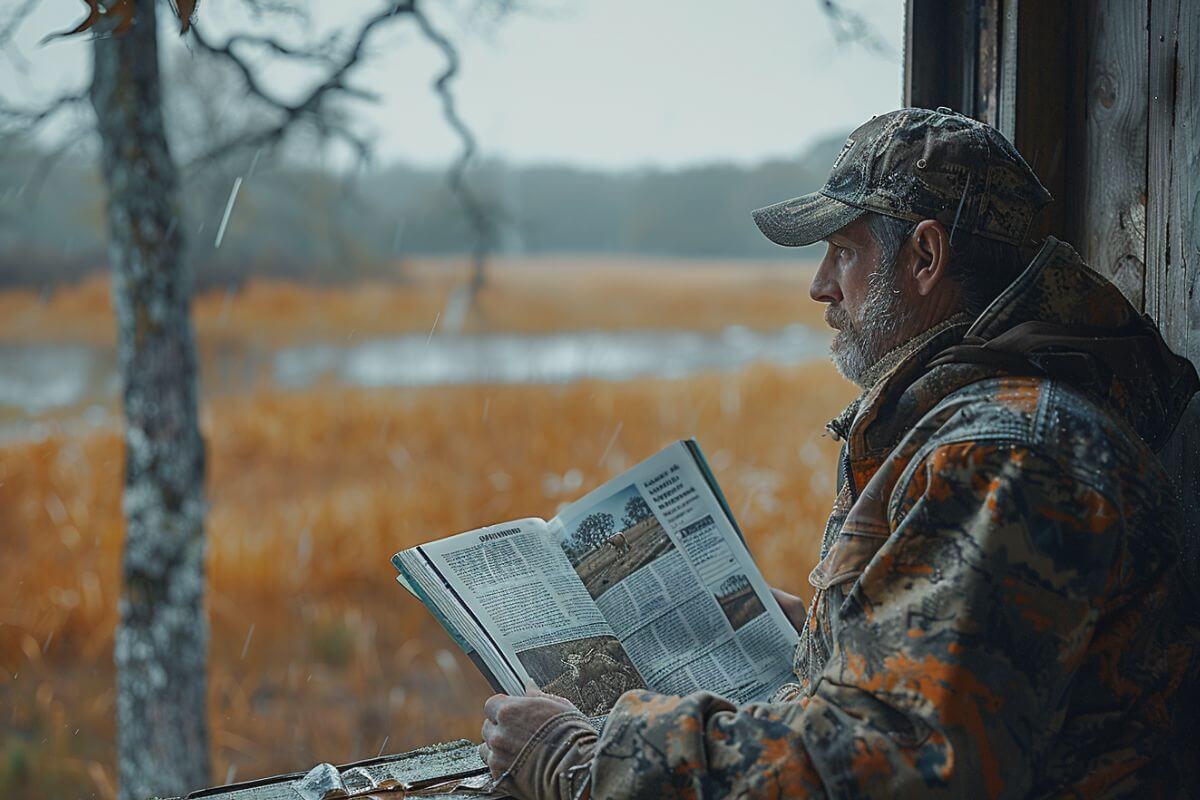
| Eligibility | Reduced Cost | Special Considerations |
|---|---|---|
| Montana residents aged 62 or older | Significantly reduced compared to standard prices for regular adults | Discounts may not apply to non-resident seniors; Variations in fees for different types of hunting and fishing licenses |
As you get wiser with age, Montana’s hunting license system offers some wisdom too. If you’re 62 years or older, you could be in for some fantastic discounts when it comes to your hunting permits.
In Montana, honoring our seniors isn’t just a one-day celebration; it’s a year-round notion that translates into practical perks, like hunting at almost half the price.
Now, if you’re a senior reading this and thinking, “Do I want to bag those savings?” Trust me, you do. You just doubled the amount of hunting gear or fishing bait you can get for the same price.
5. Military License
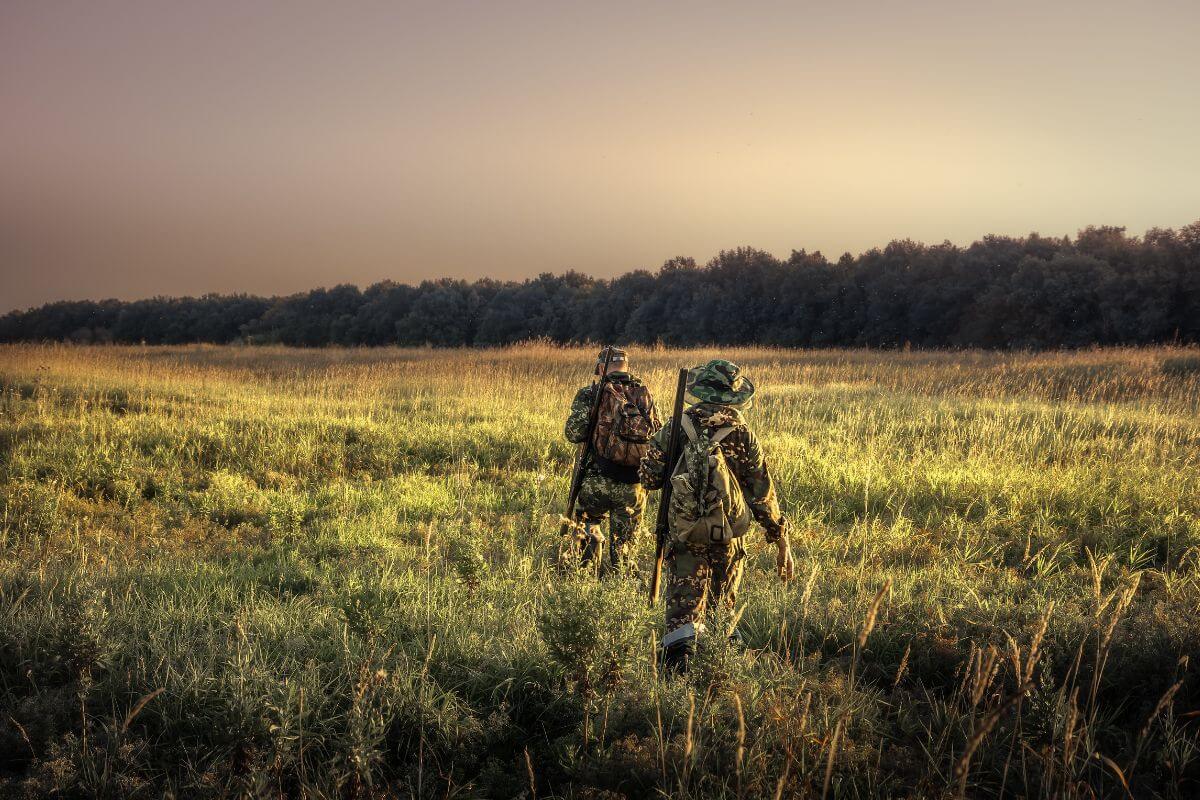
Calling all active-duty military members in and from Montana, here’s a little something to add more adventure to your stay – you can purchase a resident hunting license. This not only simplifies the process for our servicemen and women but also acknowledges their contribution and sacrifice for our country.
Eligibility for a Military Hunting License in Montana:
- Active-duty military members stationed in Montana for 30 days are eligible for a resident hunting license.
- Montana residents who are active-duty military members stationed elsewhere can also purchase a resident hunting license.
Hunting as a form of recreation and subsistence is deeply embedded in Montana’s culture. It’s a small, meaningful way the state shows appreciation for active military members.
With its stunning landscapes and abundant wildlife, Montana offers a unique and rewarding hunting experience for those who serve in the military. Just remember to bring the necessary proof and documentation to avail this discount and let Montana show you its wild, unforgettable side.
6. Disability License
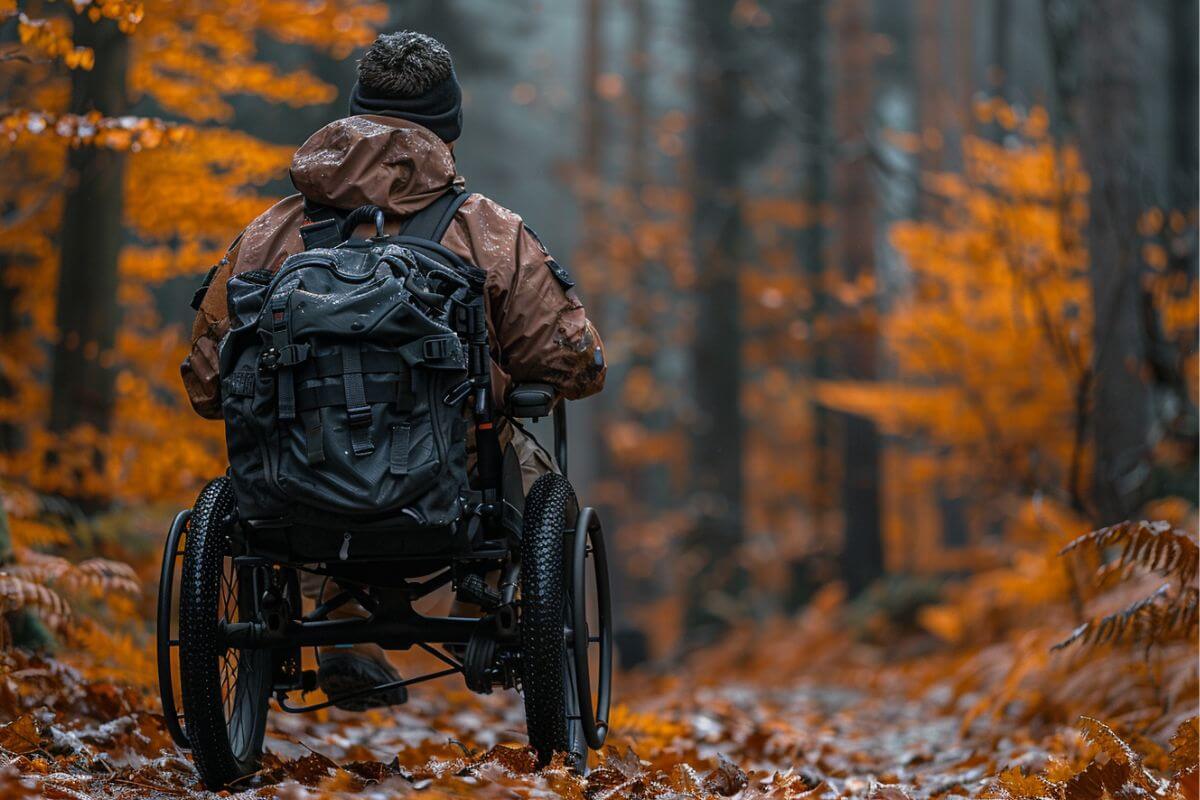
For hunters in Montana facing physical challenges, the state offers a range of custom licenses to ensure that everyone has the opportunity to enjoy the renowned hunting experience.
Here is a list of the disability hunting licenses in Montana:
| License Type | Description |
|---|---|
| Disabled Antelope | Tailored for individuals who are permanently physically disabled and nonambulatory, specifically targeting antelope hunting. |
| Combat Disabled | Veterans with certain combat-connected injuries are entitled to half-priced licenses for deer and antelope, with up to 50 licenses issued annually. |
| Exceptional Youth | Montana law allows terminally ill youth under 17 to receive a free one-time Deer and Elk License. |
| Permit to Hunt From a Vehicle (PTHFV) | Caters to residents and nonresidents certified as permanently and substantially nonambulatory. |
| Permit to Modify Archery Equipment | For those with disabilities who require modified archery equipment, this permit offers access to more accommodating tackle. |
| Resident With a Disability Conservation License | Discounted conservation license for disabled Montana residents. |
| Resident Lifetime Fishing License for the Blind | Allows lifetime fishing at a reduced fee for residents who are blind. |
Disabled hunters should check the Montana Fish, Wildlife & Parks (FWP) website or contact a local FWP office for details on applying for these specialized licenses.
7. SuperTag License
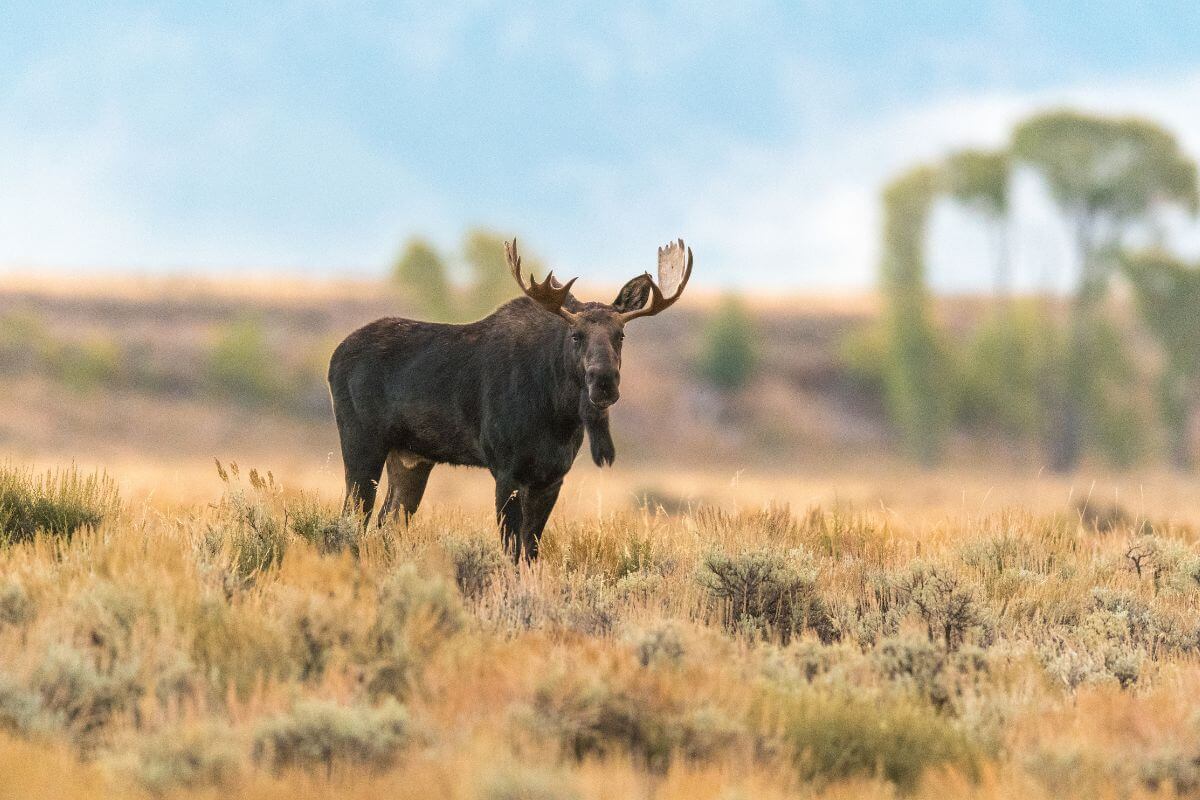
Are you feeling lucky, hunting enthusiasts? Every year, Montana holds its SuperTag lottery, an opportunity that’s the hunting license equivalent of striking gold. If you win, you can use your SuperTag to hunt in any designated hunting district in Montana, including the state’s legendary trophy districts.
Here’s a quick rundown of the SuperTag hunting lottery in Montana:
- Eight tags are awarded annually, each one capable of being used for a variety of big games. Past winners have bagged everything from mountain lions to monstrous moose.
- SuperTag sales contribute to enhancing hunting access and support FWP enforcement efforts, helping conserve Montana’s wildlife for generations to come.
- You can cast your lot for SuperTag chances in separate categories, covering a stunning array of Montana’s big game: moose, bighorn sheep, mountain goat, antelope, elk, deer, bison, and mountain lion.
- One winner is drawn for each species, so get your name in the hat for as many categories as you dare.
The SuperTag lottery isn’t just about living the dream of hunting anywhere you want in Montana; it’s also a way to give back. If you’re a keen hunter, this is yet another reason to love the inclusive hunting tradition in the Big Sky Country.
Montana Hunting License Donation Programs
Looking to give back while you enjoy Montana’s wild frontier? Did you know you can donate your hunting license to a cause that’s beyond inspiring? Let’s discuss how it works.
| Program Participants | Details |
| Donors (Residents and Non-Residents) | Residents and non-residents can donate their hunting license to a disabled military veteran or disabled active duty service member participating in rehabilitation through hunting. |
| License Recipients | The recipient must be a Purple Heart recipient and have a 70% or greater disability rating. Donors cannot choose the specific organization to receive the license. |
| Nonprofit Organizations | Nonprofit organizations involved in the rehabilitation of disabled veterans and active duty members through hunting can participate in Montana’s donated hunting license program. Organizations must incorporate hunting as part of the rehabilitation process. |
| Eligibility for Recipients | Disabled veterans and active-duty military members are eligible to receive donated hunting licenses. To qualify, they must be Purple Heart recipients and have a 70% or more service-connected disability. Contact Montana Fish, Wildlife & Parks for program details. |
Feeling the urge to do some good? Imagine the surprise and joy for a recipient who’s also a hunting enthusiast. It’s like handing over a small slice of adventure, isn’t it?
And you, my friend, are the unexpected benefactor of that smile, a shared bond over a love for both Montana’s outdoors and the heroes who deserve every bit of it.
Montana Hunting License Final Thoughts

Mastering the ins and outs of Montana’s hunting license system is much like exploring the state’s expansive wilderness itself – it requires patience, preparation, and a profound respect for the environment.
As you’ve seen, from the foundational Conservation License to the nuances of age-specific Hunter Education, Montana’s hunting prerequisites are designed to foster a culture of ethical and sustainable hunting.
So whether you’re an avid Montana resident eagerly adding to your trophy room or a non-resident who yearns to experience Big Sky Country in a new light, securing your hunting license might seem formidable. But trust me, it’s an essential first step towards creating your unforgettable Montana hunting saga.
With every form filled and certification in hand, you’re not just a licensed hunter — you’re an ambassador for responsible wildlife management. And as you traverse Montana’s rugged terrains, never forget: you’re not just hunting for game, you’re hunting for memories that will last a lifetime.
Montana Hunting License FAQs
1. Can I Hunt in Montana as a Non-resident?
Non-residents can hunt in Montana by purchasing the appropriate licenses and permits, which are available through the Montana Fish, Wildlife & Parks. It’s essential to familiarize yourself with the specific regulations and hunting seasons set by the state.
2. How Much Does a Hunting License Cost in Montana?
In Montana, basic hunting licenses typically cost under $15. For general and combination licenses, non-residents can expect higher fees compared to residents.
3. How Long Do You Have to Live in Montana to Buy a Resident Hunting License?
To qualify for a resident hunting license in Montana, you need to establish residency by living in the state for a time period of at least 180 consecutive days. Additionally, there are other requirements such as your cars need to be registered in Montana too to be eligible for resident hunting privileges.
4. How Much Does It Cost to Hunt in Montana for Nonresidents?
The prices for non-resident hunting licenses in Montana vary depending on the type of game and combination licenses, with costs ranging from $300 to $1000. For the latest and most accurate pricing details, it is advisable to check the Montana Fish, Wildlife & Parks website or contact them directly.
5. What Can You Hunt in Montana Without a License?
Predators and nongame species in Montana, such as coyotes and ground squirrels, are not protected by federal or state laws or regulations. As a result, they can be hunted year-round without a license by both resident and non-resident hunters.
Discover more about Montana through these informative reads:

